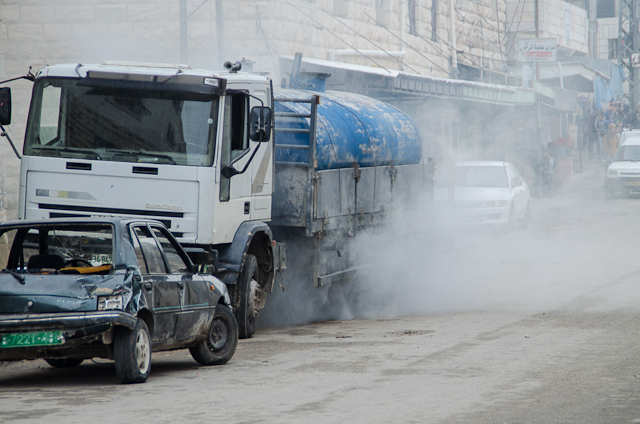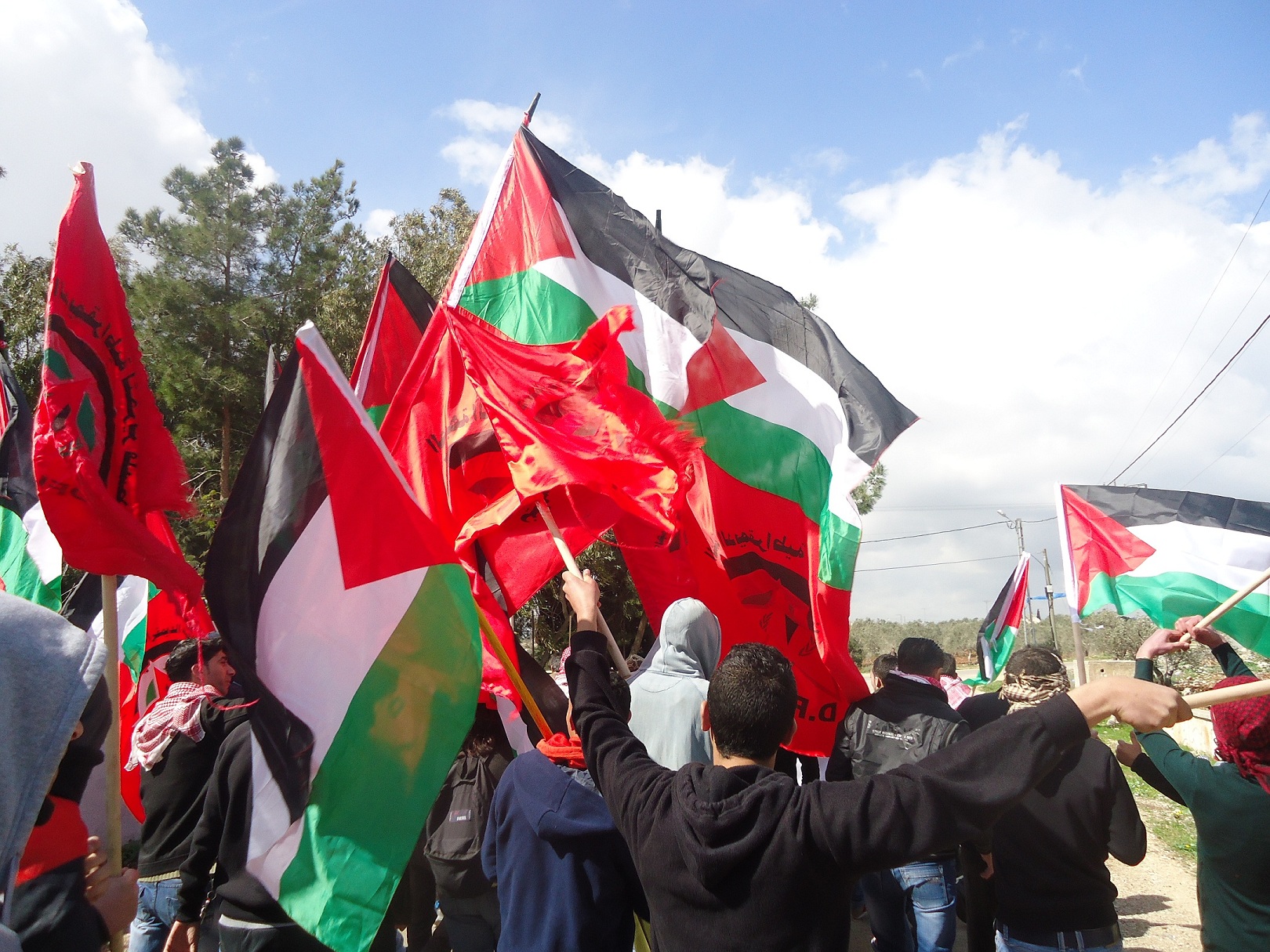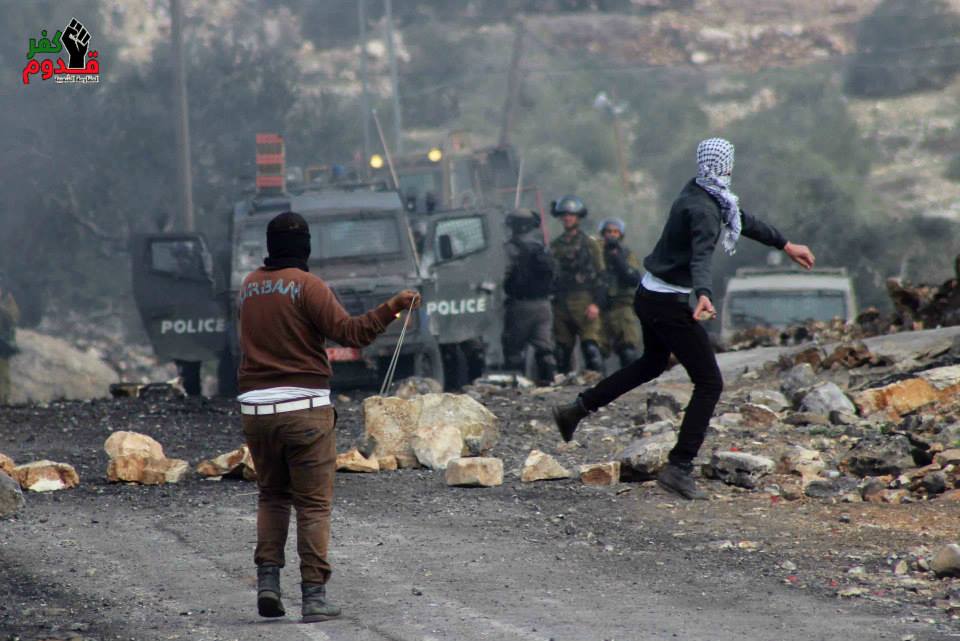Category: Reports
-
Israeli forces use tear gas against schoolchildren in Hebron
16th February 2014 | International Solidarity Movement, Hebron Team | Hebron, Occupied Palestine On Sunday, the 16th of February, Israeli soldiers and border police in Hebron fired tear gas and sound grenades at children on their way to school. The border police also chased the children, attempting to arrest them. At Checkpoint 29, around 7:30 a.m.,…
-
Palestinian shot by live ammunition during demonstration in Tura
15th February 2014 | International Solidarity Movement, Nablus Team | Tura, Occupied Palestine On Saturday, February 15th, Demonstrators gathered at 11:30 a.m. by the village of Tura near the annexation wall to celebrate the 25th anniversary of the DFLP (Democratic Front for the Liberation of Palestine). People began chanting and marching in the direction of the checkpoint.…
-
Four injured at weekly demonstration in Kafr Qaddom
14th February 2014 | International Solidarity Movement, Nablus Team | Kafr Qaddom, Occupied Palestine At approximately 10:00 a.m. on Friday, the Israeli army positioned themselves on top of the hill overlooking Kafr Qaddom and on the closed road that leads to the illegal settlement, Qedumim. As they did last week, the Israeli army attempted to portray…



